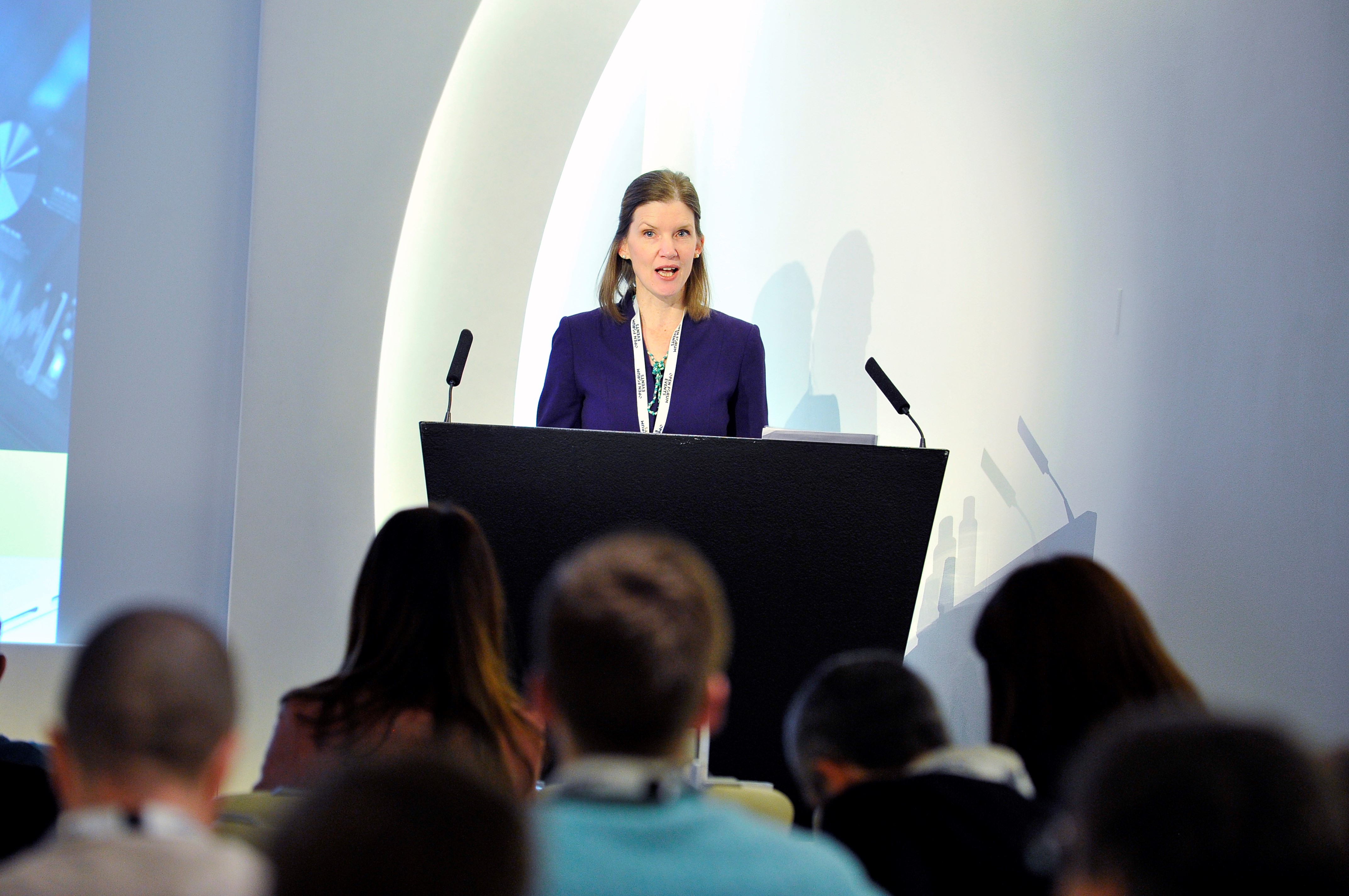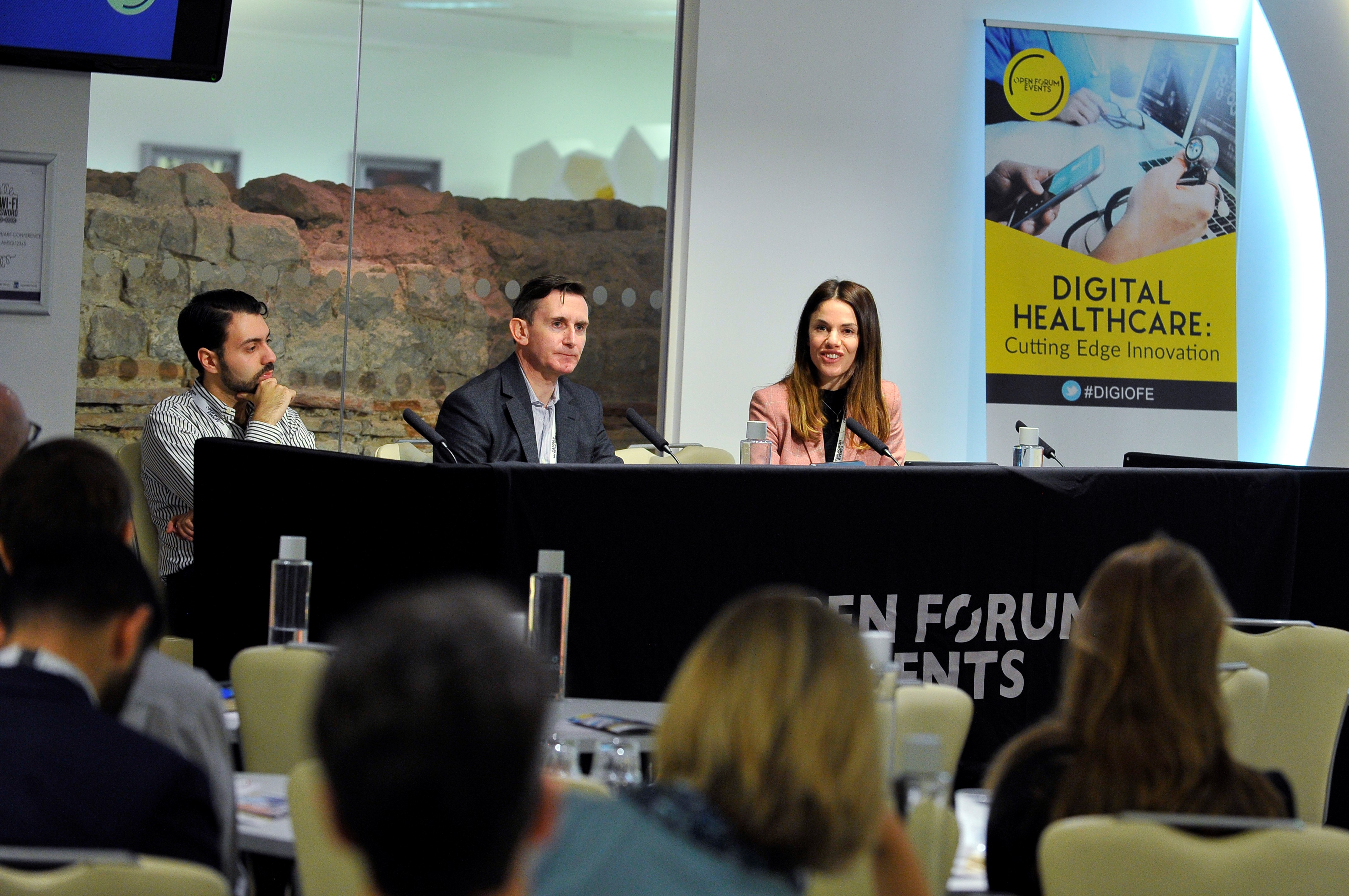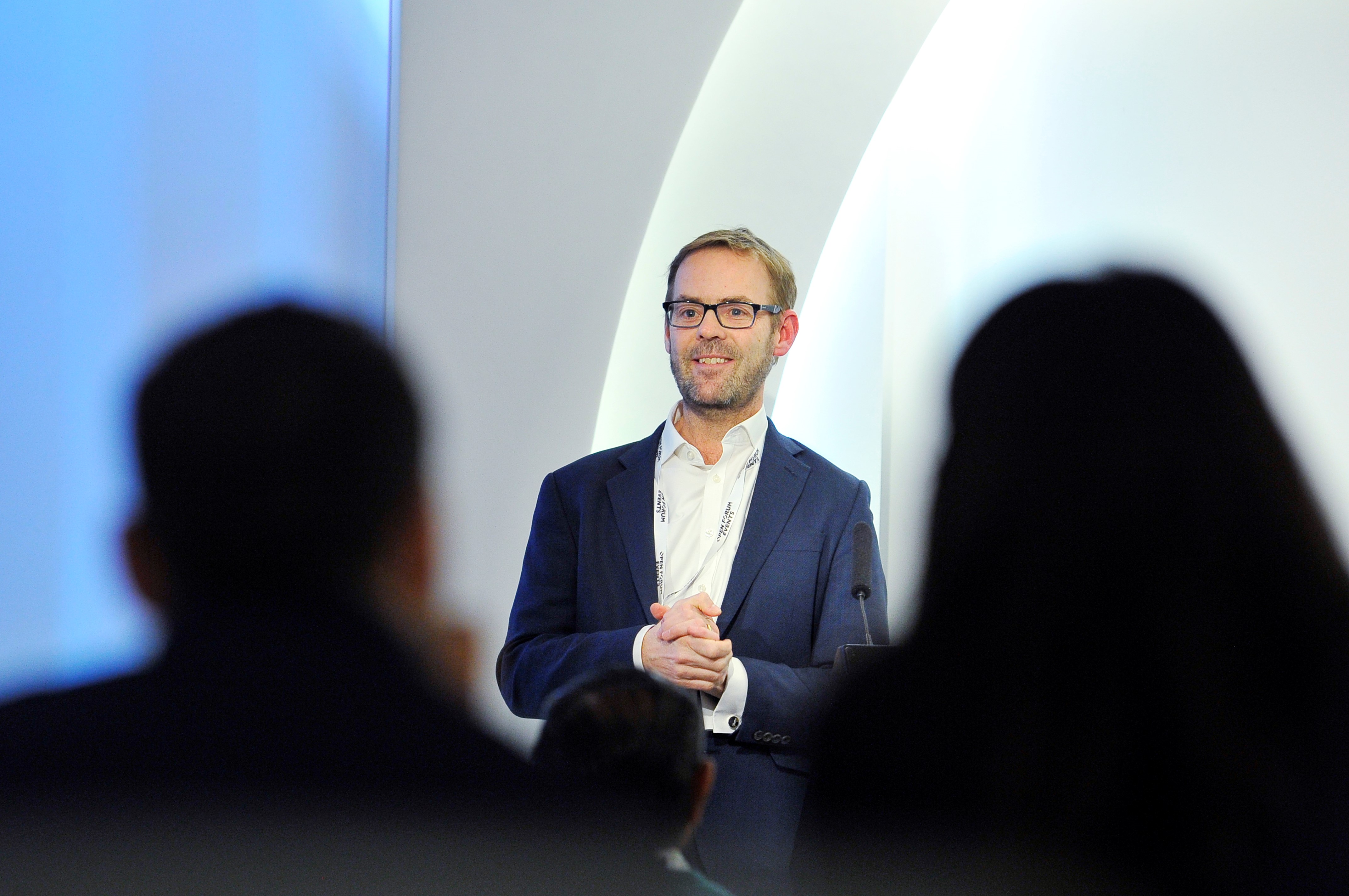Digital Healthcare: Cutting Edge Innovation
- 15 February 2018
- Posted in: Healthcare, Science & Technology
London’s America Square Conference Centre played host to the latest edition of Open Forum’s series of digital healthcare events, and our first conference of 2018; Digital Healthcare: Cutting Edge Innovation.
Digital Healthcare events have become a staple of OFE’s conference calendar, with each instalment providing further insight into the direction of healthcare regionally, nationally and globally. Whether it’s the latest wearable technologies on the market; pro-actively informing users that their body is beginning to show signs of illness, innovative apps designed to improve information sharing between health and social care staff and patients, or even the integration of artificial intelligence and robotics into clinical services. Before arriving in hospital wards across the globe, medical innovations revolutionising health and social care make their first stop at Open Forum’s Digital Healthcare events.
On the agenda for Cutting Edge Innovation was the pursuit of an innovative, technology rich and fully digitalised NHS, how to equip the NHS to assess and strategically handle emerging cyber threats in the wake of last year’s WannaCry ransomware attack, why the Danish-British programme Digital Diabetes Prevention has been successful in promoting lifestyle change and disease management for 140,000 patients, in addition to how the emergence of robotics and artificial intelligence have the potential to deliver better, faster and more accessible care for patients.
Delegates arrived at the capital’s chic ASCC to hear from a roster of speakers that included Dr Saif Abed, founding partner of AbedGraham and part of the University of Oxford’s GCHQ certified cybersecurity programme; Dr Vis Reddy, the Clinical Lead for numerous police constabularies across the UK and Hannah Harniess, Programme Director at DigitalHealth.London, supporting high potential start-ups and SMEs to develop and deploy solutions to some of the most pressing challenges facing the NHS.
In addition to the keynote speeches on the day’s agenda, ASCC’s networking suite featured some of the sector’s foremost providers of innovative digital healthcare products. Texthelp’s latest accessible technology ‘browsealoud’, software that provides print, speech and translation tools to assist web users with dyslexia, low literacy levels, English second language speakers and users with mild visual impairments. Across the room, organisational governance and meeting-management software providers eShare demonstrated their paperless solutions to running a trust-board efficiently and securely. In the light of information shared by keynote speaker Dr Neil Ralph, National Programme Lead for Technology Enhanced Learning at Health Education England, that a survey in 2017 found that 64% of NHS workers are using technological devices to assist in their day-to-day work and only 6% do not own a tablet or smart phone; eShare’s Client Relations Manager, Alasdair Ward, and head of Business Development David Richardson spoke to delegates about their experience helping Derbyshire Community Health Services on their digital journey with eShare’s range of software platforms enabling the effective management of top-level organisational leadership; seeing results from ‘less time looking for information, and more time looking at it’.

The conference was chaired by Julia Manning, Chief Executive of the independent social enterprise think tank 2020Health and a regular guest on the national news show circuit to debate topical issues in healthcare; having appeared on BBC News and radio, ITV’s Good Morning Britain, LBC radio, Newsnight, Panorama and The Week. Julia, who has experience working in the NHS and as a visiting lecturer at City University, opened the conference at 09:30 by setting delegates the task of writing down three digital initiatives from the event that could be beneficiary to the healthcare they provide and assist their organisation’s transition to digitalisation. By five o’clock, delegates would have been hard-pressed to narrow it down to just three.
Dr Charlie Davie, Managing Director of UCL Partners and practising Consultant Neurologist at the Royal Free London NHS Foundation Trust, treated attendees to a preview of Pulse; an iteration of the mixed reality software developed by Microsoft – the HoloLens. Pulse allows clinicians to build a holographic replica of a patient’s internal organs, providing a clearer path to diagnosis and expediting treatment; without doubt a glimpse into the future of healthcare. Following Dr Davie was Dr Vicky Chico, Data Policy Advisor to the Health Research Authority and lecturer in law at the University of Sheffield, giving a keynote presentation that dived into the technicalities of the General Data Protection Regulation. Vicky navigated the complexities of the law, providing delegates with a digestible summation of the general principles of the Regulation; analysing the lawful bases for processing personal health data in the context of scientific research, with emphasis on consent as the lawful basis for processing.

Brian Pomering, leader of PwC’s UK Health Consulting, Cost Reduction and Performance Improvement practices, as well as an expert in orthopaedics, ophthalmology, diagnostic imaging, pharmaceuticals, pathology and oncology summed up the zeitgeist of healthcare in his keynote address, telling delegates:
In the last two years we’ve learnt more about disease than we have in human history predating 2015.

Such a statement is awe-inspiring, yet humbling. It speaks volumes for the strides taken in recent years by those in medicine, whilst simultaneously shining a light on the embryonic stage humanity had been operating in before then. As our understanding of medicine and healthcare continues to evolve at unprecedented rates, you can be sure Open Forum Events’ future Digital Healthcare conferences will lead the way in bringing together those spearheading the cutting edge innovation.



